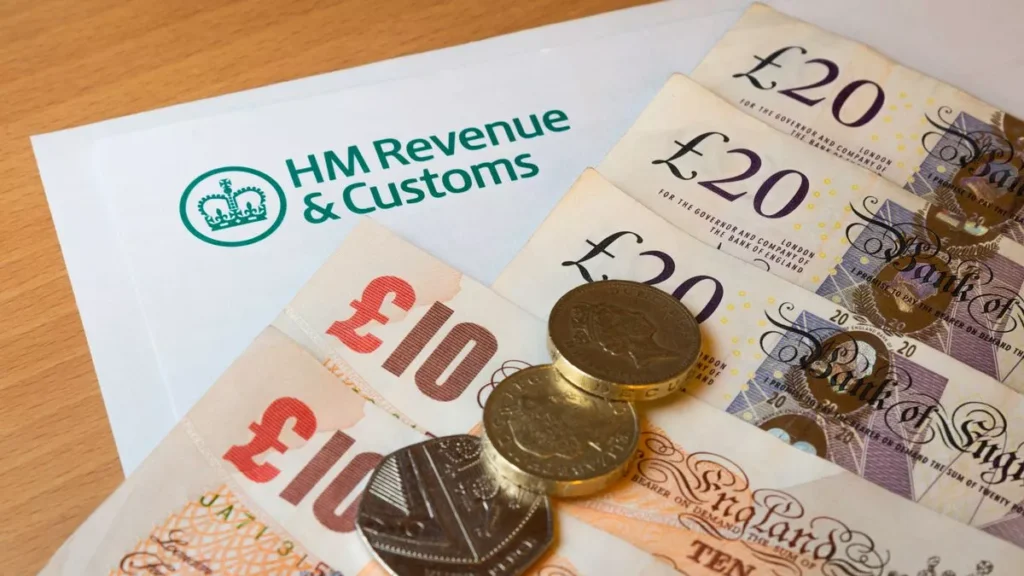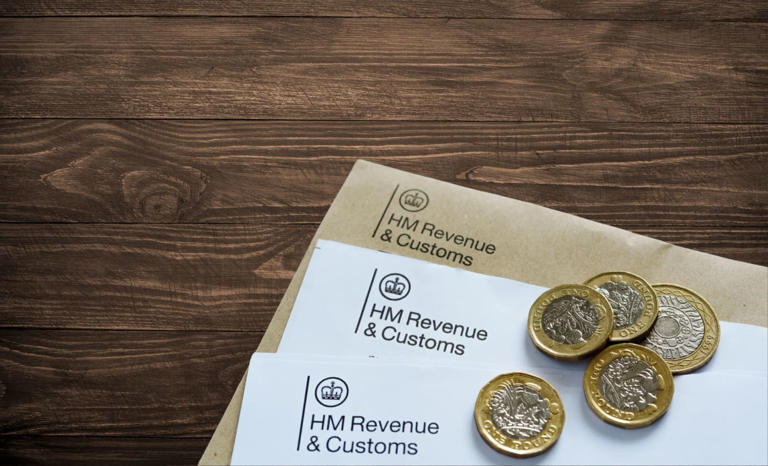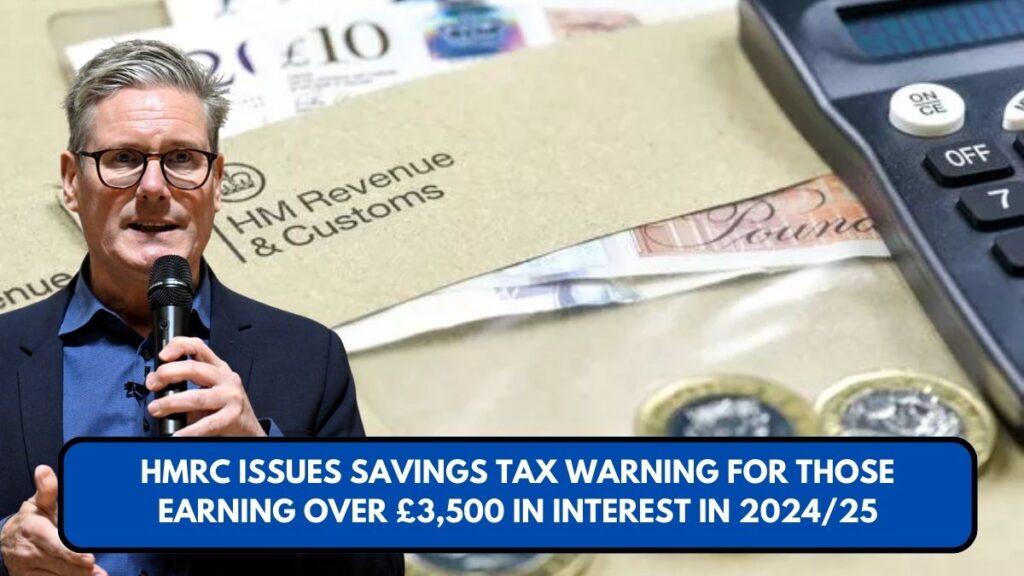UK savers are being warned by HM Revenue and Customs (HMRC) that they could be hit with unexpected tax bills if their savings interest exceeds the annual tax-free allowance.
The alert specifically applies to individuals who earned more than £3,500 in interest from their savings during the 2024/25 tax year, a figure that significantly surpasses the standard Personal Savings Allowance (PSA).
This guidance comes as many are unaware that even modest interest income from non-ISA savings accounts may be taxable and must be reported to HMRC.

What Is the Personal Savings Allowance?
The Personal Savings Allowance allows individuals to earn a certain amount of interest on savings before they must pay tax:
- Basic rate taxpayers (20% income tax bracket) can earn up to £1,000 in interest tax-free.
- Higher rate taxpayers (40% bracket) have a reduced allowance of £500.
- Additional rate taxpayers (45% bracket) do not qualify for any PSA.
This means that if your savings interest exceeds these thresholds, you may need to pay tax on the difference.
Why £3,500 in Savings Interest May Trigger a Tax Bill
While earning £3,500 in savings interest may sound modest to some, it is well above the standard tax-free savings thresholds. Unless the money is stored in tax-free accounts like ISAs, it is subject to taxation.
HMRC receives reports from banks and building societies on the interest paid to savers. This means even if you do not proactively report the interest, HMRC is likely aware of your earnings and may adjust your tax code or issue a tax bill accordingly.
How Tax Is Collected
1. For Employed Individuals or Pensioners:
HMRC can automatically collect tax by changing your tax code, ensuring you pay the appropriate amount through PAYE (Pay As You Earn).
2. For Self-Employed or High-Income Earners:
If your total investment income (including savings interest) exceeds £10,000, you must file a Self Assessment tax return.
3. Others Not in PAYE or Self-Assessment:
If HMRC determines that tax is owed, they may send you a calculation letter (P800) explaining how much you owe and how to pay.
Joint Accounts: A Common Oversight
If you share a joint savings account, the interest is assumed to be split 50/50 unless otherwise stated. This means each individual is taxed on their share, and each person’s PSA is considered separately.
So, if you earned £3,500 interest in a jointly held account, HMRC will consider £1,750 per individual, which may or may not breach your PSA depending on your tax bracket.
What Should You Do Now?
- Check your savings account statements and tally the total interest earned during the 2024/25 tax year (ending 5 April 2025).
- Use HMRC’s online tools or speak with a tax adviser to see whether you owe any tax.
- If you believe your interest exceeded your PSA and you haven’t received a tax bill by 31 March 2025, contact HMRC directly to avoid penalties or late payment interest.
You can reach HMRC via https://www.gov.uk/contact-hmrc or call their helpline for individuals: 0300 200 3300.

Tax-Free Alternatives: Use ISAs
To avoid taxation on interest in the future, consider saving money in Individual Savings Accounts (ISAs). The ISA allowance for 2024/25 is £20,000, and interest earned within these accounts is completely tax-free, regardless of income or tax bracket.
Final Thoughts
The HMRC warning underscores the importance of understanding how interest on savings is taxed. With rising interest rates, even small savings balances can now produce meaningful interest — and potentially a tax liability.
Staying informed and proactive can help you avoid an unpleasant surprise from HMRC, especially as the tax year closes. Whether it’s using ISAs, checking your tax code, or filing a return, timely action is key to staying on the right side of the taxman.
This article has been carefully fact-checked by our editorial team to ensure accuracy and eliminate any misleading information. We are committed to maintaining the highest standards of integrity in our content.

Himanshu Sharma writes for Weekend Spy, focusing on recruitment, government schemes, and current affairs. He is dedicated to making complex information accessible to readers.
Himanshu enjoys playing chess, hiking, and trying new recipes, always seeking ways to combine his love for writing with his passion for exploration. Connect with Drop him an email at [email protected].







